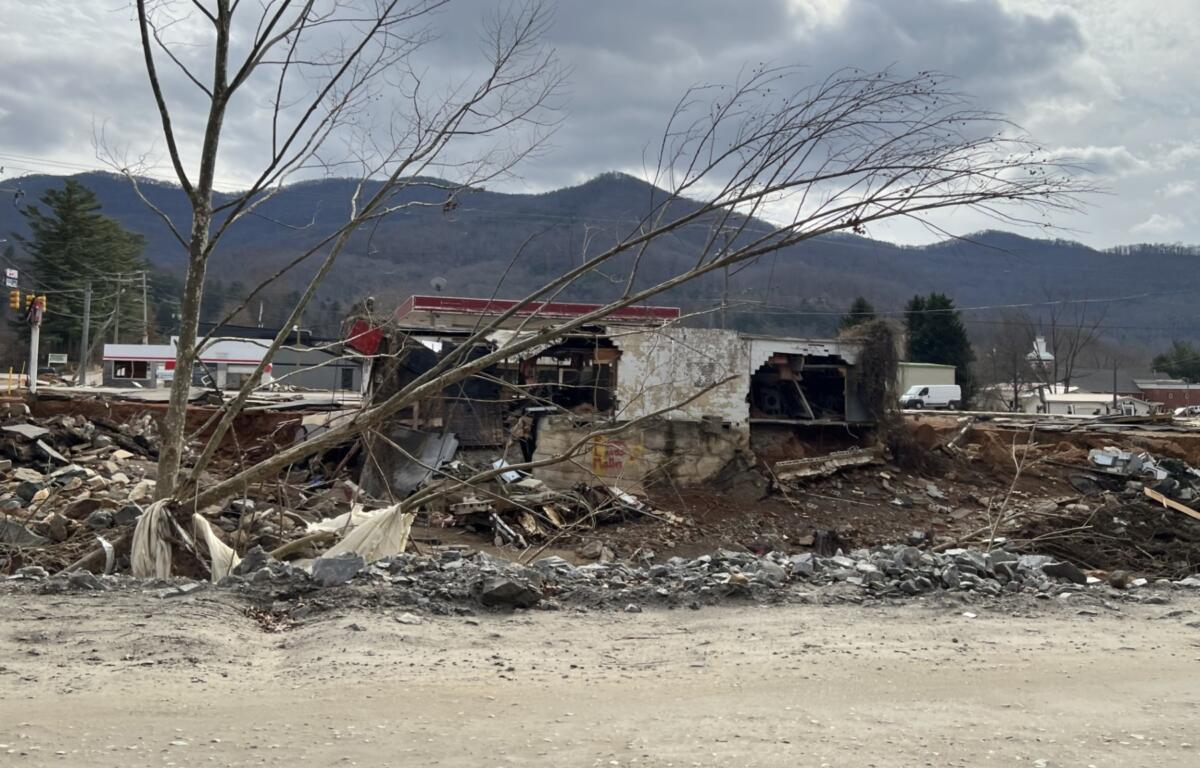ASHEVILLE, N.C. (828newsNOW) — FEMA has opened a Mobile Disaster Recovery Center in Weaverville.
The center will be available 8 a.m.-6 p.m. Wednesday-Friday, Dec. 11-13, at the Weaverville Town Hall, 30 Main St., to provide one-on-one help to North Carolinians affected by Tropical Storm Helene.
Starting Wednesday, FEMA mitigation specialists will be in local big box stores to help answer questions and give advice to contractors, homeowners and do-it-yourselfers on proven techniques to repair and rebuild safer and stronger. Specialists will be available 8 a.m.-6 p.m. through Saturday at The Home Depot, 127 Acton Circle, Asheville, before moving to other locations.
By the numbers
- $273 million approved for 139,000-plus households and individuals beginning their recovery.
- $292 million in Public Assistance funding approved to support community recovery.
- FEMA is providing multiple temporary housing options to meet North Carolinians’ individual needs. The first step to receiving housing assistance is applying with FEMA.
- More than 5,000 households are using Transitional Sheltering Assistance hotels and motels.
- 55 households have been placed in travel trailers or manufactured housing units provided by FEMA Direct Temporary Housing Assistance.
- To date, more than 1.9 million cubic yards of debris have been removed from public rights of way by FEMA and the U.S. Army Corps of Engineers and its contractors. Debris being removed includes: vegetative/woody debris, construction debris, white goods (appliances) and household hazardous waste.
North Carolina Disaster Recovery Centers
A Disaster Recovery Center is a one-stop shop to meet with FEMA representatives, apply for FEMA assistance, receive referrals to local assistance, apply with the U.S. Small Business Administration for low-interest disaster loans and more. No appointment is needed. DRCs are open 8 a.m.-6 p.m. weekdays and 9 a.m.-2 p.m. Saturdays. Find one near you at: FEMA.gov/drc or text “DRC” and a ZIP code to 43362. You can visit any open center, including locations in other states.
Direct Temporary Housing Assistance
FEMA offers several types of housing assistance and temporary shelter solutions for eligible households. Direct Temporary Housing Assistance is approved for 25 counties as an interim solution to permanent housing needs. These temporary housing solutions include travel trailers or manufactured home units, and more will be available soon. These options take time, and individuals will be contacted by FEMA if they are eligible. Learn more about housing assistance options and eligibility by watching this video.
Public Assistance: Federal cost share increases for North Carolina
To assist North Carolina communities with recovery costs associated with Tropical Storm Helene, President Joe Biden approved an increase of the federal cost share on Oct. 2, from 75 percent to 100 percent for the first 180 days of the disaster incident period. On Dec. 6, an additional increase was approved, a 90 percent cost share was put in place for public assistance projects after the first 180 days.
Crisis counseling, mental health resources available for Helene survivors
The North Carolina Department of Health and Human Services’ Hope4NC Crisis Counseling Program provides immediate support and crisis counseling services for North Carolinians following Helene. Survivors experiencing stress, emotional fatigue, a mental health crisis or just need someone to talk to can call the Hope4NC Helpline 24/7 at 1-855-587-3463. Services are provided at no cost and are available to anyone residing within the declared 39 North Carolina counties and tribal members of the Eastern Band of Cherokee Indians, regardless of their eligibility for FEMA financial assistance. Additionally, the Substance Abuse and Mental Health Services Administration’s Disaster Distress Helpline is available anytime to provide support. Survivors and responders feeling overwhelmed can call or text 1-800-985-5990 to receive free, confidential support in any language.
Read your FEMA letter carefully
If you applied for assistance, you will receive a letter explaining your application status. If you are not approved for assistance, you may need to send additional documentation to FEMA. You can easily upload documents to Disasterassistance.gov or submit them at a Disaster Recovery Center.
Support for repairs on private roads and bridges
FEMA funding may be available to support repairs on private roads and bridges, even if your primary home is not damaged. For more information or to schedule an inspection, call 800-621-FEMA (3362).
Qualifying private nonprofit houses of worship may be eligible for FEMA grants
FEMA’s Public Assistance program may cover costs to repair or replace facilities damaged during the storm. Interested applicants should contact North Carolina Emergency Management at pahotline@ncdps.gov.
Assistance for moving and storage costs
FEMA may help with moving and storage costs for eligible North Carolina survivors who are unable to stay in their homes or who are living in a temporary shelter.
Updated FEMA programs better assist people with disabilities
FEMA funding is available to eligible survivors with disabilities to make certain accessibility improvements to homes damaged by a declared disaster. Recent updates in FEMA Individual Assistance programs provide disaster support by increasing accessibility and eligibility for affected people, families and communities. To learn more, click here.
Appeal a decision
You can appeal any FEMA decision or award amount by sending additional documents, like estimates for repairs, receipts, bills, etc., that show you qualify and need more help. Each decision letter from FEMA explains why you are ineligible and the types of documents to help you appeal. For more details, please click here.
Meet with a FEMA mitigation specialist in a DRC
FEMA mitigation specialists are in DRCs to help answer questions and give advice on techniques to repair and rebuild safer and stronger. They are meeting with people at DRCs in Alleghany, Ashe, Avery, Burke, Caldwell, Haywood, Henderson, Madison, McDowell, Mecklenburg, Mitchell, Rutherford, Transylvania, Watauga and Yancey counties.


